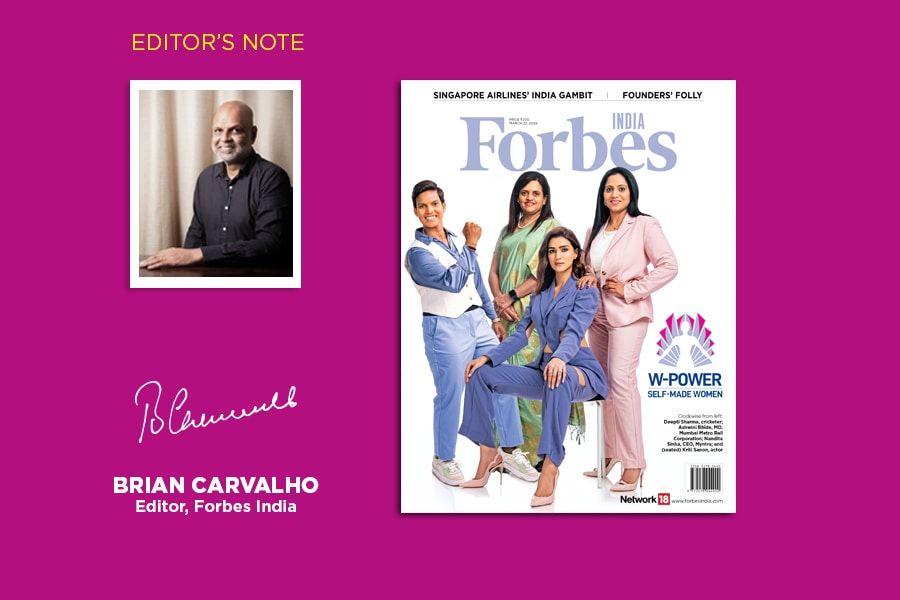
Flip the pages of the 2024 W-Power Self-Made Women issue
The Forbes India W-Power list of Self-Made Women has achievers of all hues: Business founders, professionals who've worked their way to the top; authors; bureaucrats bringing change via technology and infrastructure-creation; those driving social good and social change as well as those standing up for the oppressed and the underdog, and a few underdogs themselves

How does one earn the self-made title? One of the achievers on this edition’s list of ‘Self-Made Women’ reckoned that it wasn’t possible for most mortals to be that. Her short point: To reach where she has, her family, friends, mentors, peers, among others, played key roles. So, she didn’t quite qualify as ‘self-made’.
That’s a fair argument. Yet, it’s with good reason that Forbes India persisted with ‘self-made women’—which arguably today makes more sense than ‘self-made men’. Let me explain.
Centuries ago, there were no self-made persons, only self-made men. Benjamin Franklin, one of the United States’ founding fathers, is considered the first. His rise from the working class to a successful inventor (of the lightning rod and bifocals, among others), businessman and politician are what make him self-made.
Typically, self-made persons are from less privileged backgrounds who through their perseverance—rather than privileges of inheritance and lineage—reach positions of financial or political power.
The ‘Self-Made Man’ has his origins as an American construct with the likes of Abraham Lincoln, Andrew Carnegie and Henry Ford being anointed with the label. More recently, it has largely come down to entrepreneurial success, and self-made (mostly) men are seen as the world’s biggest wealth creators.





